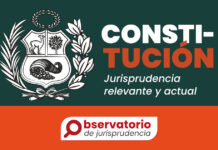Fundamento destacado: 31. Como se consagra en el artículo 9 (art. 9), la libertad de pensamiento, de conciencia y de religión es uno de los fundamentos de una «sociedad democrática» en el sentido de la Convención. Es, en su dimensión religiosa, uno de los elementos más vitales que conforman la identidad de los creyentes y su concepción de la vida, pero también es un bien precioso para ateos, agnósticos, escépticos y despreocupados. De ella depende el pluralismo indisociable de una sociedad democrática, que ha sido duramente conquistado a lo largo de los siglos.
Si bien la libertad religiosa es principalmente una cuestión de conciencia individual, también implica, entre otras cosas, la libertad de «manifestar la propia religión». Dar testimonio con palabras y obras está ligado a la existencia de convicciones religiosas.
De conformidad con el artículo 9 (art. 9), la libertad de manifestar la propia religión no sólo puede ejercerse en comunidad con los demás, «en público» y dentro del círculo de aquellos cuya fe se comparte, sino que también puede afirmarse «individualmente» y «en privado»; además, incluye en principio el derecho a tratar de convencer al prójimo, por ejemplo, mediante la «enseñanza», de lo contrario, la «libertad de cambiar de religión o de creencias», consagrada en el artículo 9 (art. 9), probablemente quedaría en letra muerta.
[Traducción de LP]
31. As enshrined in Article 9 (art. 9), freedom of thought, conscience and religion is one of the foundations of a «democratic society» within the meaning of the Convention. It is, in its religious dimension, one of the most vital elements that go to make up the identity of believers and their conception of life, but it is also a precious asset for atheists, agnostics, sceptics and the unconcerned. The pluralism indissociable from a democratic society, which has been dearly won over the centuries, depends on it.
While religious freedom is primarily a matter of individual conscience, it also implies, inter alia, freedom to «manifest [one’s] religion». Bearing witness in words and deeds is bound up with the existence of religious convictions.
According to Article 9 (art. 9), freedom to manifest one’s religion is not only exercisable in community with others, «in public» and within the circle of those whose faith one shares, but can also be asserted «alone» and «in private»; furthermore, it includes in principle the right to try to convince one’s neighbour, for example through «teaching», failing which, moreover, «freedom to change [one’s] religion or belief», enshrined in Article 9 (art. 9), would be likely to remain a dead letter.
[Idioma original]
CASE OF KOKKINAKIS v. GREECE
(Application no. 14307/88)
In the case of Kokkinakis v. Greece*,
The European Court of Human Rights, sitting, in accordance with Article 43 (art. 43) of the Convention for the Protection of Human Rights and Fundamental Freedoms («the Convention»)** and the relevant provisions of the Rules of Court, as a Chamber composed of the following judges:
Mr R. RYSSDAL, President,
Mr R. BERNHARDT,
Mr L.-E. PETTITI,
Mr J. DE MEYER,
Mr N. VALTICOS,
Mr S.K. MARTENS,
Mr I. FOIGHEL,
Mr A.N. LOIZOU,
Mr M.A. LOPES ROCHA,
and also of Mr M.-A. EISSEN, Registrar, and Mr H. PETZOLD, Deputy Registrar,
Having deliberated in private on 27 November 1992 and 19 April 1993, Delivers the following judgment, which was adopted on the lastmentioned date:
PROCEDURE
1. The case was referred to the Court by the European Commission of Human Rights («the Commission») on 21 February 1992, within the threemonth period laid down in Article 32 para. 1 and Article 47 (art. 32-1, art. 47) of the Convention. It originated in an application (no. 14307/88) against the Hellenic Republic lodged with the Commission under Article 25 (art. 25) by a Greek national, Mr Minos Kokkinakis, on 22 August 1988. The Commission’s request referred to Articles 44 and 48 (art. 44, art. 48) and to the declaration whereby Greece recognised the compulsory jurisdiction of the Court (Article 46) (art. 46).
The object of the request was to obtain a decision as to whether the facts of the case disclosed a breach by the respondent State of its obligations under Articles 7, 9 and 10 (art. 7, art. 9, art. 10).
[Continúa…]
Descargue la resolución aquí
*The case is numbered 3/1992/348/421. The first number is the case’s position on the list of cases referred to the Court in the relevant year (second number). The last two numbers indicate the case’s position on the list of cases referred to the Court since its creation and on the list of the corresponding originating applications to the Commission.
**As amended by Article 11 of Protocol No. 8 (P8-11), which came into force on 1 January 1990




![Se puede hacer un control oficioso de un acto ineficaz (apoderado vendió bien del poderdante cuando este ya había muerto) [Expediente 00211-2018-0-0905-JR-CI-01]](https://img.lpderecho.pe/wp-content/uploads/2023/01/testamento-firma-sucesion-bienes-matrimonio-casa-civil-contrato-LPDerecho-218x150.png)
![Registrador debe respetar la voluntad del testador fallecido en sucesión testamentaria [Resolución 0967 2025-Sunarp-TR]](https://img.lpderecho.pe/wp-content/uploads/2024/04/notario-civil-casa-matrimonio-documento-acta-sello-testamento-heredero-union-divorcio-LPDerecho-218x150.jpg)
![La participación antes, durante y después del hecho delictivo (vigilancia, reglaje, desaparición de los objetos del delito) evidencia la configuración de una cooperación necesaria en la consumación del delito, siendo un aporte material y psicológico de carácter primario [RN 584-2024, Ancash, ff. jj. 4.10, 4.12]](https://img.lpderecho.pe/wp-content/uploads/2024/04/mazo-abogado-juez-civil-corte-sentencia-juicio-LPDerecho-218x150.jpg)
![Sunafil puede sancionar la desnaturalización de contratos incluso si ya terminó el vínculo laboral [Resolución 0484-2025-Sunafil/TFL-Primera Sala]](https://img.lpderecho.pe/wp-content/uploads/2024/03/sunafil-fachada-LPDerecho-218x150.jpg)
![Ley Orgánica del Registro Nacional de Identificación y Estado Civil (Ley 26497) [actualizada 2025]](https://img.lpderecho.pe/wp-content/uploads/2025/05/Ley-organica-del-registro-nacional-de-identificacion-y-estado-civil1-LPDERECHO-218x150.jpg)











![Desheredación: concepto, fundamento, causales, diferencias con la indignidad [ACTUALIZADO 2025]](https://img.lpderecho.pe/wp-content/uploads/2020/10/La-desheredacion-218x150.jpg)
![¿Qué es el anticipo de herencia y cómo tramitarlo? [ACTUALIZADO 2025]](https://img.lpderecho.pe/wp-content/uploads/2021/07/El-anticipo-de-herencia-LPDerecho-218x150.png)
![La capacidad jurídica en el Código Civil, a la luz de la Convención sobre derechos de personas con discapacidad [ACTUALIZADO 2025]](https://img.lpderecho.pe/wp-content/uploads/2020/03/capacidad-juridica-LP-218x150.jpg)


![Caso resuelto con perspectiva de género: La no renovación del contrato de una gestante se trató de un acto de discriminación por su condición de mujer [Casación 29300-2019, Cusco]](https://img.lpderecho.pe/wp-content/uploads/2023/05/trabajadoras-gestantes-descanso-LPDerecho-218x150.jpg)
![Variar el título de imputación de cómplice primario a autor en la sentencia de vista altera todo lo discutido a lo largo del proceso, sin permitir que el favorecido modifique su estrategia de defensa, situación que afecta, de forma flagrante su derecho de defensa y el principio de correlación entre lo acusado y lo condenado [Exp. 02418-2023-PHC/TC]](https://img.lpderecho.pe/wp-content/uploads/2024/04/mazo-justicia-juez-jueza-defensa-civil-penal-juicio-LPDerecho-218x150.jpg)
![La Constitución no puede ser objeto de una evaluación de validez material porque no existe una norma superior sobre ella que determine sus contenidos mínimos [Exp. 014-2003-AI/TC, f. j. 17]](https://img.lpderecho.pe/wp-content/uploads/2023/01/Logo-LP-con-fondo-guinda-LPDERECHO-218x150.png)



![Modifican el TUPA del Ministerio del Interior para regular servicio sobre el cannabis medicinal [Decreto Supremo 005-2025-IN]](https://img.lpderecho.pe/wp-content/uploads/2025/06/CANNABIS-MINISTERIO-INTERIOR-LPDERECHO-218x150.jpg)
![Indecopi declara ilegal el empadronamiento obligatorio de repartidores en San Isidro [Resolución 0207-2025/SEL-Indecopi]](https://img.lpderecho.pe/wp-content/uploads/2025/02/indecopi-fachada-generico-LPDerecho-218x150.jpg)
![Reglamento de la Ley 30364 (Decreto Supremo 009-2016-MIMP) [actualizado 2025]](https://img.lpderecho.pe/wp-content/uploads/2024/07/Reglamento-de-la-Ley-30364-LPDERECHO-218x150.jpg)

![Código Procesal Penal peruano [actualizado 2025]](https://img.lpderecho.pe/wp-content/uploads/2024/02/VENTA-CODIGO-PENAL-BANNER-POST-TAPA-DURA-LPDERECHO-218x150.jpg)
![Reglamento sobre encuestas electorales durante los procesos electorales [Resolución 0107-2025-JNE]](https://img.lpderecho.pe/wp-content/uploads/2025/05/REGLAMENTO-ENCUESTAS-ELECTORALES-LPDERECHO-1-218x150.jpg)
![Diseño de la cédula de sufragio para la Consulta Popular de Revocatoria del Mandato de Autoridades Municipales 2025 [Resolución Jefatural 000031-2025-JN/ONPE]](https://img.lpderecho.pe/wp-content/uploads/2025/05/DISENO-CELULA-SUFRAGIO-REVOCATORIA-LPDERECHO-218x150.jpg)





![[VIDEO] Juez propone que todos los delitos se tramiten en unidades de flagrancia, sin excepción](https://img.lpderecho.pe/wp-content/uploads/2025/05/DELITOS-PLANTEA-TABOA-LPDERECHO-218x150.jpg)
![[VIDEO] Hay jueces que rechazan cautelares porque «el caso es complejo», advierte Giovanni Priori en LP](https://img.lpderecho.pe/wp-content/uploads/2025/05/JUECES-RECHAZAN-CAUTELARES-GIOVANNI-LPDERECHO-218x150.jpg)
![[VIDEO] Pedro Castillo podría buscar asilo político si enfrenta el juicio en libertad, advierten Benji Espinoza y Elio Riera](https://img.lpderecho.pe/wp-content/uploads/2025/05/PEDRO-CASTILLO-ASILO-ABOGADOS-LPDERECHO-218x150.jpg)





![Encubrimiento personal: Juez que firma diligentemente el levantamiento de ordenes de capturas, sin tener a la vista un expediente o haberse emitido razón alguna, incrementa el riesgo propio de su rol, por lo que no puede invocar su propio dolo en su beneficio [Apelación 8-2021, Corte Suprema]](https://img.lpderecho.pe/wp-content/uploads/2024/04/juez-audiencia-sala-penal-banner-LPDerecho-218x150.jpg)
![Los delitos que se perpetraron a través de la asociación ilícita no pueden sustentar la existencia de diversas asociaciones, ya que el delito contempla no una sino de una pluralidad de delitos; y se consuma desde que se busca la finalidad delictiva y no cuando se ejecutan las infracciones proyectadas, siendo independiente de los delitos que a través de ella se cometen (caso Vladimiro Montesinos) [RN 561-2011, Lima]](https://img.lpderecho.pe/wp-content/uploads/2024/04/mazo-juez-jueza-justicia-defensa-delito-balanza-civil-penal-acusacion-LPDerecho-218x150.jpg)
![Abonar en total 800 soles a través de pequeñas transferencias por Yape (de entre 5 y 50 soles) como propinas para la compra de hamburguesas, entre otros gastos no esenciales, no constituye pago de alimentos [Exp. 6839-2023-25]](https://img.lpderecho.pe/wp-content/uploads/2025/04/Giammpol-Taboada-Pilco-LPDerecho-324x160.png)
![Código Penal peruano [actualizado 2025]](https://img.lpderecho.pe/wp-content/uploads/2024/05/VENTA-CODIGO-PENAL-LPDERECHO-100x70.jpg)

![Código Procesal Penal peruano [actualizado 2025]](https://img.lpderecho.pe/wp-content/uploads/2024/02/VENTA-CODIGO-PENAL-BANNER-POST-TAPA-DURA-LPDERECHO-100x70.jpg)
![Código Civil peruano [actualizado 2025]](https://img.lpderecho.pe/wp-content/uploads/2024/05/VENTA-OFICIAL-CODIGO-CIVIL-2024-LPDERECHO-100x70.jpg)
![Desheredación: concepto, fundamento, causales, diferencias con la indignidad [ACTUALIZADO 2025]](https://img.lpderecho.pe/wp-content/uploads/2020/10/La-desheredacion-324x160.jpg)




![Abonar en total 800 soles a través de pequeñas transferencias por Yape (de entre 5 y 50 soles) como propinas para la compra de hamburguesas, entre otros gastos no esenciales, no constituye pago de alimentos [Exp. 6839-2023-25]](https://img.lpderecho.pe/wp-content/uploads/2025/04/Giammpol-Taboada-Pilco-LPDerecho-100x70.png)
![Desheredación: concepto, fundamento, causales, diferencias con la indignidad [ACTUALIZADO 2025]](https://img.lpderecho.pe/wp-content/uploads/2020/10/La-desheredacion-100x70.jpg)




![Voto de magistrados: Las entidades públicas tienen el deber de determinar si la información, que es objeto de solicitud de acceso, es pública o privada, antes de proceder con una respuesta (voto que integra la sentencia de mayoría) [Exp. 0551-2021-PHD/TC, f. j. 6]](https://img.lpderecho.pe/wp-content/uploads/2023/01/Logo-LP-con-fondo-guinda-LPDERECHO-324x160.png)